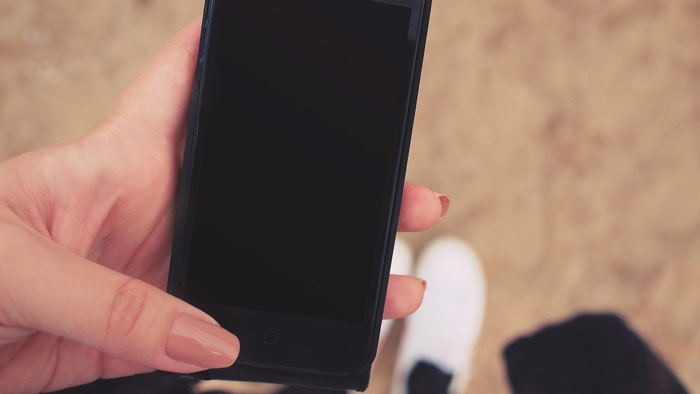Thirty-five people whose lives are inextricably linked with mobile devices and the Internet, spent four days on an absolute digital diet. And it gave some interesting results.

Such an unusual experiment was held by Kate Unsworth – the Head of Kovert Designs that develops smart jewelry. The company’s product line includes rings and pendants that make modern technology less obtrusive and visible, helping to find a balance between the digital and real life. The jewellery is synchronized with your smartphone and sends the owner only some notifications from the most important contacts. Thus, they free a person from an uncontrolled view of every event, leaving more time to implement their creative potential.
In two years of existence, Kovert Designs has gained considerable attention from investors. High-quality goods with modern ideology are sold with a bang, although Kate does not focus on sales. She sees her company as a research center that studies people’s digital habits and their influence on lives. Most of the company’s employees are neuroscientists, psychologists and philosophers who explore how technology changes body and behavior.
Reading these studies [about the negative influence of technology] convinced me that we need to do something. But it will take more than just individuals unplugging periodically. It will take a change in social values and etiquette.
Kate Unsworth
With these thoughts, the 29-year-old Briton invited 35 directors and executives to travel to Morocco, where they would be separated from civilization. Five neuroscientists secretly watched everything that was going on.
On the first day of the trip, the participants got to know each other in a prestigious hotel where they had free access to smartphones.
The group spent the following four days in the Moroccan desert in full digital detox. Scientists watched every aspect of human behavior. They carefully studied facial expressions, physical movements and communication between the subjects themselves. And that’s what they saw.
Posture improvement and deeper relationships

After three days of digital “abstinence”, all people’s posture improved markedly. The participants no longer lowered their heads to smartphone displays and started looking forward. The upper part of the body, shoulders and the spine straightened. More frequent eye contact facilitated closer acquaintance. During the conversations, people got relaxed and treated each other with greater attention.
Communication improvement
Separation from search engines greatly changed the course of conversation. These days, people rush to Google for answers to the most minor issues. Usually this interrupts the exchange of views. Without access to the Internet, the study participants continued sharing their thoughts on the subject, which often developed into jokes, role-playing and entertaining stories. The more conversations there were, the stronger interpersonal communication became. The participants began to understand each other’s way of thinking. Communication became unusual, exciting, and memorable.
Memory improvement
Even in a couple of days without technology, the participants became more likely to remember minor details about each other, such as the names of distant relatives who were casually mentioned during the dialogue. According to scientists, people’s full participation in conversation helps their brain to handle and store new information.
Gadgets trained our brains not to register seemingly unimportant details. Nevertheless, these details are actually very significant in the process of bonding between people.
Improved sleep

During the experiment, participants slept no longer than usual, but they said they felt more rested and restored in the morning. Neuroscientists explain that blue screens suppress the production of melatonin – the hormone that facilitates falling asleep. Other studies have also shown that checking your cell phone before going to sleep affects the quality of rest adversely.
A better view of life
Even a short time spent offline helped the participants to rethink their plans for the future. It was probably the most powerful result. Someone decided on a change in career or relationship, someone reviewed his/her attitude to health and sports. The lack of distractions allowed having a more objective look on life and prioritizing. Clear consciousness helped the participants to believe that they have the strength to make a change.
Of course, the experiment does not claim to be a comprehensive scientific research; it is still too early to make global conclusions. However, many participants said that they liked the experience, and they are ready to say goodbye to gadgets at night and on weekends.
Do you agree with the advantages of digital detox?










